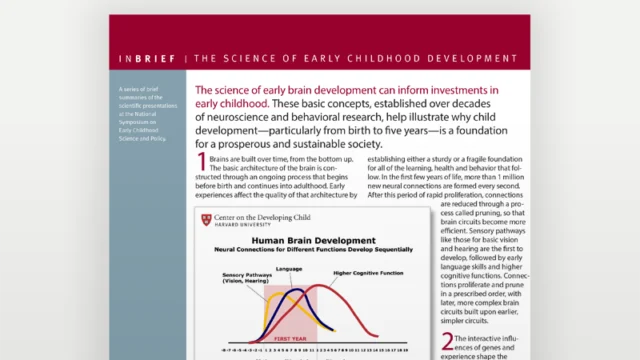InBrief: The Science of Early Childhood Development

This page has been translated.
The science of early brain development can inform investments in early childhood. These basic concepts, established over decades of neuroscience and behavioral research, help illustrate why child development—particularly from birth to five years—is a foundation for a prosperous and sustainable society.